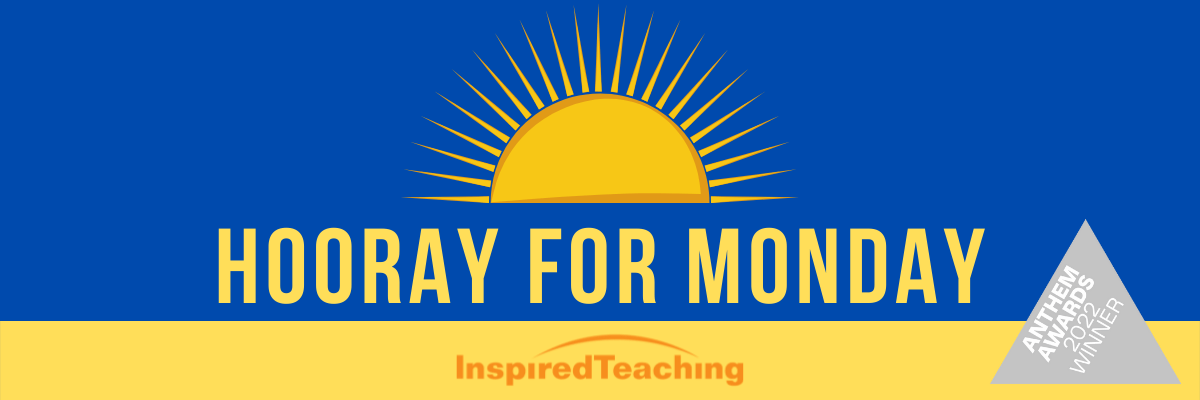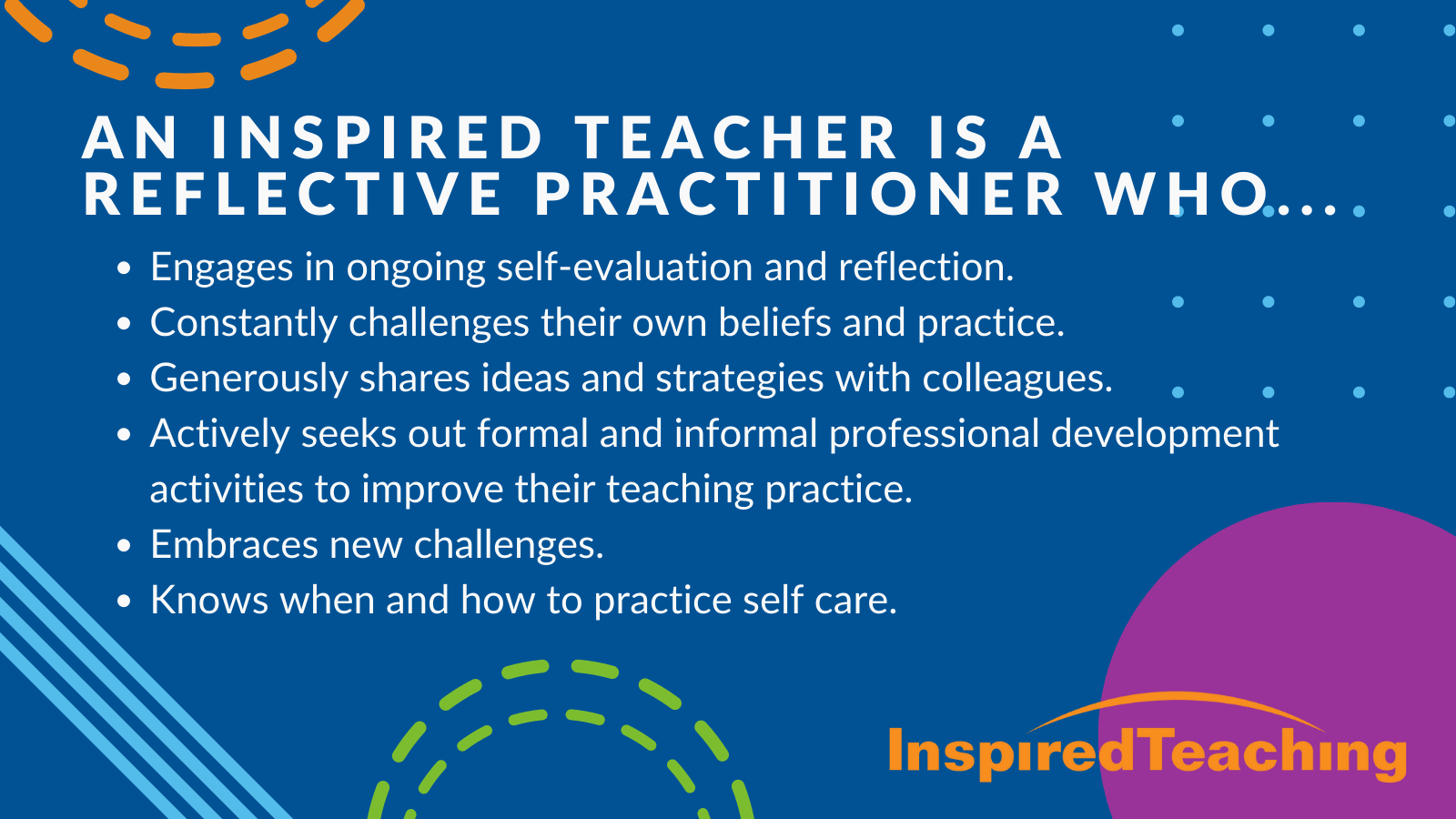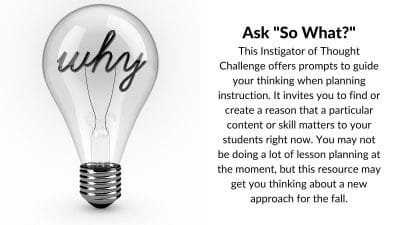June 27, 2022
By Aleta Margolis, Founder and President, Center for Inspired Teaching
Hooray for Monday is a weekly blog filled with questions, ideas, reflections, and actions we can all take to remodel the school experience for students.

Summer is a good time to step back and focus on our work as educators, our role in the classroom, and our aspirations for ourselves and our students. (This kind of thoughtful reflection can be hard to manage when our time is spent, by necessity, playing whack-a-mole during the school year…) Longtime participants in Inspired Teaching’s programming will remember the document An Inspired Teacher Is… Today and in upcoming issues of Hooray For Monday, I’ll delve into the qualities of Inspired Teachers, and the ways in which we can rejuvenate our practice while also caring for ourselves.
Our free June and July Inspired Teaching Institutes (open to all educators!) focus on reflection, and this important practice connects to one of the core tenets of what An Inspired Teacher Is:

Being a reflective practitioner means being intentional about your choices as a teacher. It means questioning norms, from the logistical to the philosophical.
I began learning this lesson early in my teaching career, starting with my first public school teaching job as a sixth-grade teacher. As I was setting up my classroom and preparing for the first days of school, colleagues would stop by my room to offer advice on the nuts and bolts of teaching.
I learned how to color coordinate my bulletin boards, where to buy the best classroom posters, and how to laminate hall passes so they wouldn’t get worn out. And I learned strategies for staying on schedule with the scope and sequence, enforcing rules and consequences, and ensuring I would have enough grades recorded by the end of each marking period.
I recall hours of conversation with my more experienced colleagues, who generously offered their time to help ensure I started my teaching career on solid footing. Much of their advice was indeed wise. However, as I look back on those early years of teaching, I realize that very little of our conversations were focused on the reasoning behind the advice.
We rarely discussed why teachers should be the ones designing bulletin boards and choosing classroom posters; why hall passes are required, and whether they should be. Nor did we engage in conversation around the relative merits of sticking to a set curricular calendar vs. allowing student interest to drive learning; posting rules and consequences vs. inviting students to collaborate in creating expectations; or completing each chapter test vs. engaging in a conversation around how students want to demonstrate their growing mastery in content areas.
Now, decades later, having taught thousands of teachers myself, I’ve learned to ask why, and to encourage others to do the same. For every “proven” teaching practice, I encourage teachers to ask:
- Why do we do it this way?
- What benefits does it offer?
- What might the downsides be?
- How is this approach/rule/norm affecting my students?
- How is this approach/rule/norm affecting me?
These questions, particularly the last two, challenge us to pay close attention, observe, reflect, and adjust our actions accordingly.
As summer break begins, and we strive to slow down our own heartbeats, take some time to think about these whys, whats, and hows. Let them marinate for a while and see what emerges. We hope you can join us at our free July Institute to talk about how we can better trust and act upon what arises from such reflection.


